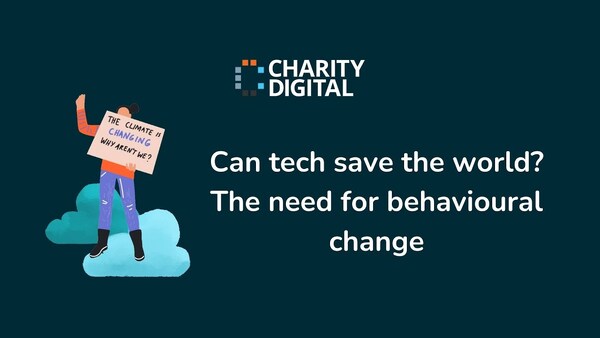Insights
INSIGHTS
All Topics
How the Metaverse appeals to the young
21 May 2024by Joe Lepper
Young people are enthusiastic about the Metaverse. But there are clear barriers. We explore what action is needed to ensure the young have access to it
Young people are increasingly interested in opportunities created in the Metaverse, which offers a 3D experience and is widely tipped to be the next phase of online communication.
Their interest includes accessing exciting jobs in developing this new technology, as well as using it for immersive work placements and training.
In addition, young people are looking forward to accessing the Metaverse to meet people.
But fears are emerging that this interest could be wasted as young people, particularly those from low-income backgrounds, face being unable to afford to access the Metaverse.
Here we examine what the Metaverse is, the opportunities for young people and what action is needed to ensure it boosts social mobility for disadvantaged young people.
What is the Metaverse?
The Metaverse’s focus on offering a shared 3D immersive experience through virtual and augmented reality technology is set to revolutionise the internet and social media.
Although an emerging concept, many elements of the Metaverse already exist, such as through gaming platforms like Fortnite and Roblox. It also has the potential to be used widely across work, education, and training, as well as through virtual work experience and meetings.
According to financial firm Citi its global value could top £10 trillion by 2030, when there are predicted to be five billion unique Metaverse users.
Interest has certainly been growing in recent years. In 2021 Google searches for the Metaverse increased by 7,200% and research has shown that three in five people are interested in how it will impact everyday activities such as shopping, dating, and working.
Why does it appeal to young people?
Young people are particularly excited by the opportunities the Metaverse can give them in their careers and lives, according to the charity EY Foundation.
In 2023 it produced a report called Social Mobility Inside the Metaverse based on workshops involving young people from low income backgrounds and experts.
“The Metaverse could remove barriers to getting a much deeper understanding of different jobs. It could totally change work experience so that a young person can access a diverse range of roles in any industry they want to explore,” says one young person involved.
This is expended on by another young person involved, who says: “Immersive skills training should mean that learning methods can be adapted in response to different needs. For example, perhaps a visual learner could learn through ‘doing’ rather than reading an article.”
Meanwhile, another says: “Making new work connections can be tough and this could be a way to get over that barrier. It would be great if I could use this technology to meet new people and build my own networks.”
What action is needed to involve young people?
But despite this interest in the Metaverse, young people, particularly from low-income backgrounds, are worried they will be locked out of using it if it is inaccessible or too expensive. According to EY Foundation, young people eligible for free school meals in school are three times more likely than their peers to be unemployed by the age of 27.
“Lots of the technology is expensive, so that’s an immediate barrier that will stop people using it,” one young person told the charity.
To ensure young people can access the opportunities of the Metaverse, EY Foundation recommends that those involved in work experience placements and training ensure the technology is widely available for young people.
The UK government can support employers too by ensuring Metaverse skills training is included in regional plans to improve skills.
It also wants to see Metaverse developers ensure the technology is readily available to more young people through their mobile phones, rather than restricting its use through expensive computer hardware. EY Foundation would like to see “a minimum standard for all Metaverse environments” that ensures mobile phone accessibility.
In addition, the charity would like to see the creation of local networks of Metaverse “career influencers” to “reach out to excluded communities to introduce the implications of working in an immersive 3D world”.
Employers and other organisations could use existing mentoring programmes to develop awareness of emerging job opportunities in the Metaverse.
Schools and colleges should also be involved by using the Metaverse to improve its careers guidance for pupils.
“There is a significant potential for the Metaverse to unlock new career opportunities for young people from low-income backgrounds, proving the chance to break through the barriers imposed by a low level of social mobility,” says EY Foundation.
The charity’s Chief Executive Lynne Peabody adds: “Organisations focused on supporting the future of young people must look ahead to the sort of world they are likely to be working in.
“This means acting now to advocate for the action needed to unlock opportunities and minimise risk associated with new technologies like the Metaverse.
Joe Lepper
More on this topic
Recommended Products
Recommended Products
Related Videos
Our Events
Charity Digital Academy
Our courses aim, in just three hours, to enhance soft skills and hard skills, boost your knowledge of finance and artificial intelligence, and supercharge your digital capabilities. Check out some of the incredible options by clicking here.



















